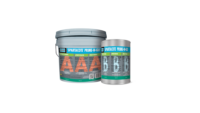Moving beyond the fabrication plant, Vangura is even more proud of its showroom space - which includes multiple levels where visitors can peruse finished stone applications ranging from kitchens and bathrooms to living rooms, fireplaces and bar areas. The showroom even features a glass-enclosed children's activity area that not only enables visitors to maintain parental supervision while making product selections, but it is also a showcase of Vangura's Vanite, engineered with Silestone, in bright primary colors. Customers can also oversee work in the fabrication plant from a “creation operation center†with two observation decks, and the slab storage area allows customers to view materials in an open, comfortable environment.
Given the large massive investment in time, money and space required to create Vangura's homeowner-friendly operation, it is interesting to note that Vangura does not sell to any homeowners whatsoever. “Our commitment is to wholesale manufacturing,†explained owner Ed Vangura. “There is a lot of comfort for kitchen and bath dealers to encourage their customers to visit Vangura's Quarry. We don't sell direct at all, but we've set our sights on creating the ultimate destination where kitchen and bath dealers bring their customers to capture both their trust and total commitment.â€
In effect, Vangura has created a brand name in stone production, a very unique development when you consider how stone is marketed and sold in the U.S. The company even provides customers with a “certificate of authenticity,†endorsing the finished countertop as a Vangura job. As a result of this commitment to professionalism, Vangura has enjoyed solid market penetration through dealers within a 200-mile radius of its headquarters. This includes Pittsburgh and Western Pennsylvania as well as Cleveland, OH; Columbus, OH; West Virginia; Maryland and Western New York.
As the company's name indicates, Vangura Surfacing Products started out in laminated countertops in the 1970s, moving into stone products in 1998. Like so many other companies that have expanded from man-made countertop materials into stone, Vangura has a rigid business model and has gained a strong measure of success.
As I drove home from Vangura's plant, I began to think about the place that companies such as this now occupy in our stone industry (and believe me, when you drive from Pittsburgh to New Jersey, you have plenty of time to think). I thought, “Man, companies like this are going to take over the industry. How will the smaller shops ever compete?†But in reality, the demand for granite in the residential sector is growing to a point where there seems to be plenty of room for everyone out there - even large-scale companies who are relative newcomers to the trade. As I have heard many times, “If your shop is not busy, you're doing something wrong.†And demand continues to grow as consumer awareness of natural stone increases. As long as quality remains high, consumer demand should ensure that shops of all sizes have a place in the market.
With this in mind, people who read about companies like Vangura should not be awed by the size of its operation, but instead should take a cue from the way it positions stone as a premium building material. It is the commitment to quality and customer service that will ensure that homeowners will not regard stone countertops as a mere commodity item. In the end, it is this philosophy that will benefit the industry as a whole.


